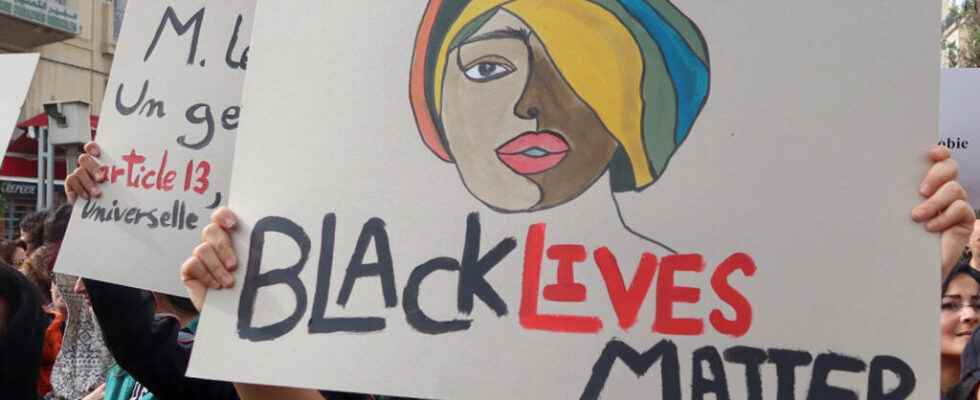After President Kaïs Saïed’s remarks, the authorities warned: anyone who would host foreign people without a residence card or a declaration at the police station would be breaking the law. The warning also applies to employers who hire undeclared foreign workers. Thus, many sub-Saharan migrants in an irregular situation find themselves expelled and without work overnight. Tunisians are trying to help them by organizing collections.
With our correspondent in Tunis, Lilia Blaise
Samia, whose first name has been changed to preserve her anonymity, is loading a car with clothes and meals, results of collections from Tunisians, solidarity with sub-Saharans who have been homeless in recent days.
” For people on the street, unfortunately, ready meals are needed. For people who are at home, meat, pasta, rice, starches… Things to keep you going, especially when it’s a bit cold. And then, milk for babies, nappies and wipes, intimate hygiene products… »
A gesture of solidarity that goes through word of mouth and social networks, in order to help both migrants awaiting repatriation home and those who remain cloistered without being able to go to work.
” The situation is very alarming. It is very alarming and it can degenerate quickly. So I hear and understand very well that people are forced to apply the law. But it’s a bit short as an analysis. People can be given some time to organize themselves. We can give them a truce because it’s cold, and we can’t throw families out on the streets. That’s really distressing, because there are very young babies who are on the street with the temperatures it’s doing », continues Samia.
She and her association are helping a hundred people, including migrants who have been on a sit-in for two days, in front of the international organization for migration.
► Also to listen to Moncef Marzouki: “Kaïs Saïed’s statements have damaged Tunisia’s image on the continent”
Tunisia is currently in crisis. The search for a scapegoat is always a companion of a population in crisis. We have in Tunisia a nationalist party. We should ask ourselves the question about what it represents and why…
Sophie Bessis (historian): “There is an old anti-black racist tradition in Tunisia”
Analysis by historian Sophie Bessis
RFI: How did the country come to this?
Sophie Bessis : “The first thing is, to go far back in history, there is still an old anti-Black racist tradition in Tunisia which has not disappeared, even if in the 1960s and 1970s, Pan-Africanism who was in the spotlight had a little under wraps this old tradition which comes from a tradition of slavery and the fact that national black populations have always been marginalized. Tunisia is currently in crisis. The search for a scapegoat is always a companion of a population in crisis. We have a nationalist party in Tunisia, we should ask ourselves what it represents and why. And the most important question is why the highest authorities in the state have taken up this rhetoric which is absolutely primal racism. These are the most hackneyed racist stereotypes that can be found in all the far-rights of the world. »
To what extent has the outsourcing of European border security played a role in the discourse of the authorities?
There is a progression of the European right which is quite alarming with regard to the migration issue and there is a real influence, let’s say, and the means of pressure of European countries on countries like Tunisia, of which you know the extent of the economic, monetary, financial and social crisis so it is not at all impossible that part of this anti-migrant hunt is also due to these anti-European pressures. On the other hand, where it is necessary to ask a question, it is why this violence? Because unfortunately, the anti-migrant policy has become something commonplace in today’s world, but the violence of both public speech and the violence of people against Sub-Saharans today forces us to ask questions on the state of Tunisian society and its ruling apparatus.
The African Union reacted, calling the president’s remarks “shocking” and calling for calm, but what impact could these statements have on Tunisian diplomacy in Africa?
There is a compass which has been lost, there is a compass which is broken today in Tunisia and I hope that the African peers of Tunisia and in particular the countries from which a good part of the Sub-Saharan migrants originate, will firmer towards Tunisia.
